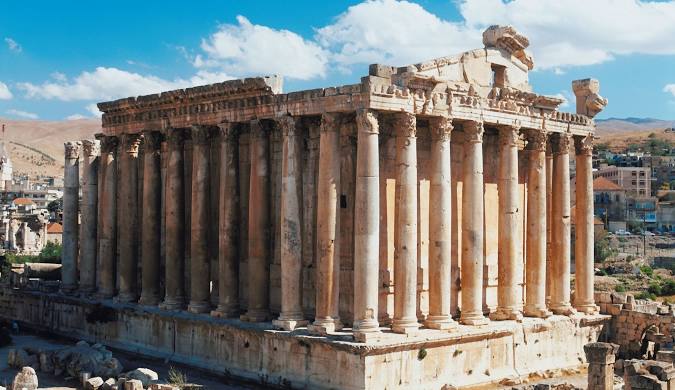Baalbek,Lebanon
🏛️ Baalbek: Lebanon’s Timeless Marvel of the Ancient World 🌞🏛️
Baalbek, often called the "City of the Sun," is home to some of the most grandiose Roman ruins outside of Rome itself. Nestled in Lebanon’s Bekaa Valley, this awe-inspiring site is a UNESCO World Heritage treasure that offers visitors a jaw-dropping journey into ancient civilization.
✨ Why Visit Baalbek?
-
🌟 Spectacular Roman Ruins:
Discover monumental structures like the Temple of Jupiter, Temple of Bacchus, and Temple of Venus — all built on a scale that defies imagination. -
🌟 Photographer's Dream:
The massive columns, intricate carvings, and golden stones that glow at sunset make Baalbek one of the most photogenic sites in the Middle East. -
🌟 Rich History:
From the Phoenicians to the Romans, Byzantines, and Arabs, every era has left its mark on Baalbek’s stones, creating a truly layered historical experience. -
🌟 Authentic Local Experience:
Explore the charming town of Baalbek itself, meet locals, enjoy traditional food, and experience the warmth of Lebanese village life.
🌇 Top Things to See in Baalbek
1. Temple of Jupiter
-
One of the largest temples of the Roman Empire, once supported by 54 massive columns, each 22 meters high. Today, six remain — and they are truly mind-blowing.
2. Temple of Bacchus
-
Better preserved than the Parthenon, the Temple of Bacchus is celebrated for its ornate sculptures, colossal walls, and stunning Roman architecture.
3. Temple of Venus
-
Smaller but equally captivating, the Temple of Venus features graceful curves and unique circular design, different from traditional Roman temples.
4. The Courtyards and Towers
-
Wander through grand courtyards and stand inside towers that have witnessed centuries of history — from Roman ceremonies to medieval fortifications.
🏛️ Fascinating Facts About Baalbek
-
Some of the stones in Baalbek's foundation — like the "Stone of the Pregnant Woman" — are among the largest cut stones ever used in construction, weighing over 1,000 tons.
-
Ancient myths suggest that Baalbek was built by giants or even constructed by divine beings, adding a layer of mystique to your visit.
-
Baalbek was a sacred pilgrimage site long before Roman times, originally dedicated to Phoenician deities.
🗓️ Best Time to Visit Baalbek
| Season | Why Visit |
|---|---|
| Spring (April-May) | Beautiful blossoms in the valley, perfect weather 🌸 |
| Summer (June-August) | Attend the famous Baalbek International Festival 🎶 |
| Autumn (September-November) | Cooler temperatures and golden landscapes 🍂 |
| Winter (December-February) | Quiet atmosphere but can be cold and rainy ❄️ |
🎒 Insider Tips for Visiting Baalbek
-
Hire a local guide — the stories behind each temple make the experience even richer.
-
Bring a hat and sunscreen — there's very little shade at the ruins, especially in summer.
-
Try Baalbek’s signature dish:
Sfiha Baalbakiyeh — small, juicy meat pies, absolutely delicious! -
Combine your trip with a visit to Anjar or the Bekaa Valley’s famous wineries for a full-day adventure.
🌟 Why Baalbek Should Be on Your Travel Bucket List
Baalbek isn’t just a sightseeing stop — it’s an encounter with human ambition, artistry, and mystery. Whether you stand beneath towering columns or gaze at intricate ancient reliefs, Baalbek will leave you feeling small, amazed, and deeply connected to history.


